Gravity's Rainbow - Part 3 - Chapter 11.3: Decomposition
Analysis of Gravity's Rainbow, Part 3 - Chapter 11.3: Pökler at Zwölfkinder, Air Strike at Peenemünde, Pökler to Nordhausen, Blizna, Ilse and Gottfried, the Schwarzgerät Project, Pökler Enters Dora
“In a corporate State, a place must be made for innocence, and its many uses. In developing an official version of innocence, the culture of childhood has proven invaluable.”
(419)
The corporate destruction and reconstruction of innocence has allowed it to be used for a purpose beyond innocence itself. As we watched Slothrop first enter the Zone, he saw many toys that had lost the air of innocence (3.1). Similarly, here at Zwölfkinder, innocence does not really exist in the traditional sense. This park — with its many attractions such as the Wheel which Pökler, in the present, lays beneath — is now a city ostensibly run by and occupied by children. The children are its politicians and leaders, workers and tour guides. But while it may seem like a bastion of innocence far away from the past and coming Wars, innocence has been reconstructed. It has been taken and made to look as free and pure as it always had at face value, while “Whoever carried on the real business […] were well hidden” (419). Innocence, like everything else, has not only been commodified, but has been structured in such a way to make us still believe in its existence and in its need for protection, all the while those who have destroyed and reshaped it will then utilize our desire to protect it to control our actions moving forward. For, as They always tell us, it is a necessity that we enlist to maintain our freedom and the freedom of our children. If we fight long and hard enough for the system in which we live, then something such as Zwölfkinder, the bastion of innocence itself, will always remain standing. Won’t it? Well, unless it is a coincidence that this park lies the exact operational range of the V-2/A4 from Peenemünde, our hopes don’t look too high. For, They know that eventually we will catch on, and when this happens, they can also wipe it clean with the push of a button, thus rendering us furious that the world could so easily allow such an atrocity to occur, making us ready and willing to enslave ourselves to the cause once again. Violence justified by violence, even if that act that caused the justification was set up by the same side ready to enact the ‘revenge.’
Ilse is Pökler’s guide through the park. He still fails to believe it is actually her, either because she has changed so heavily — just as innocence and childhood have changed — or because maybe it actually is not her, and Weissmann is again attempting to get Pökler to question reality in order to enslave him to his system. There, too, are little changes in her desires: now, seeing a set-up of penguins and fake snow, wanting to find a home at the South Pole as opposed to her one-time desire for a home the moon. The internal questioning comes to an apex when Ilse asks Pökler, after they get to their hotel room, if she can sleep beside him that night. He immediately fantasizes a scene of violent and passionate incest, believing that if it was not really Ilse, he would be justified in this desire, but realizing that if it were her, maybe he has always wanted her. Maybe his desire to violate the innocent for his own self-interest has been a struggle he has dealt with for most of his life. This disparity was first seen in the passion for scientific advancement and his own elevation as a scientist placed against the lies he told himself about what the Rocket really would be used for. And now here it arises again — desires and lusts having to be pushed to the wayside in order to protect his only: his Ilse. So, he saves her from himself, keeps her innocent for at least a moment more. If only he could view the rest of the world as his child — as the propagation of his generation — and place his desire to the wayside, to save them as well.
Day in, day out, they traversed the Zwölfkinder, hand in hand. As Ilse stared again at the fake penguins and snow, Pökler understands that her departure is coming soon. The cycle will continue, his obeisance to Weissmann now solidified. If he continues his job — becomes his work — then he will see her again every year whether or not it actually is her. But he will be able to hold onto that last vestige of hope: that what he is doing is protecting the innocent of the world, not destroying it — conducting science for discovery and not annihilation. When she leaves, he travels back to Peenemünde alone. He works and waits. She returns every year for the six years afterward until Pökler now lays here below the Wheel, waiting again.
In the time between her first leaving and when he presently lays beneath the Wheel, he continued his work just as one would have expected. But he cannot put her out of his mind, pairing symbols derived from visions, sounds, and uses of the rocket with those derived from memories and desires of Ilse. Despite his desire to save her innocence, he has now been conditioned to accept that his work will bring her back, just as Slothrop was conditioned similarly to exhibit a sexual/desirous response to Imipolex G. It is a situation that They have conditioned the world to accept — that even if our allowance of this evil to survive may destroy the world, at least it may save, or give us the hope that it may save, the one we love.
Pökler has realized that Weissmann is using him, but he cannot grasp that it is because of this dichotomy. Instead, having been away at the Zwölfkinder while an air raid hit Peenemünde, he believes that he himself is being saved for a special purpose. That Weissmann knew this was coming and so sent him away to survive. When he arrives back, he sees among the wreckage that certain gradients were made. Only the poor and the foreign workers were killed. Another parallel: the same things occured in London when Pirate and Gwenhidwy discussed the Poisson distribution of V-2 rockets falling over London (1.20). While Pirate said that it was merely the random distribution, Gwenhidwy responded by saying, “an excellent point. But all over the fucking East End, you see” (1.20, pg. 172). So, while the bombs struck in random distributions upon their target, they hit their target nonetheless, the few square miles they were intended to hit. The bombs did not land where the rich and powerful lived, they landed on the “east, and south of the river too, where all the bugs live,” (1.20, pg. 173) just as how here, in the past at Peenemünde, the rockets made a similar landing.
Time continued to pass, and the rocket had numerous other complications. During a specific test series at Blizna, after Pökler was moved from his job in propulsion to the Materials office where he was responsible for “the procurement of various plastics for insulation,” (424) the engineers stood on the exact target where the V-2 test would strike. The issue they were here to observe was a premature mid-air explosion before the target was hit, and given they knew that a direct hit was nearly impossible (since they could only have complete control until the thrusters shut off), they stood atop that target hoping to see what went wrong from the best possible vantage. Obviously, this supposed impossibility does not comfort Pökler, standing right on top of Ground Zero. And Weissmann, of course, would not be there, for while Pökler, who may have at one point thought himself indispensable, is a sacrifice the higher powers are willing to make to fulfill their death dream. On top of this, it was just another means of subjugation and control. It was Weissmann telling him and all his men that their life is in his hands and that he is free to use them however he wishes.
Even later, Pökler was sent to the Mittelwerke in Nordhausen, the center for rocket assembly which Slothrop, in the future, would explore — and escape Marvy and his ‘mothers’ — after his initial arrival in the Zone (3.2). The Mittelwerke is where the Nazis and their engineers, Pökler included, would use slave labor from the nearby concentration camp, Dora, to assist in the assembly of the V-2. Here, in his bunk, “He dreamed that the bulb [above his bed] was a representative of Weissmann, a creature whose bright filament was its soul” (427) and which we later learn (in 4.3) is actually Byron the Bulb himself.1 This bulb explains a plot to him which we will come to know as The Story of Byron the Bulb that will show how the Market will come to work after the War, and how the various ‘pointsmen’ running it set history and capital’s path on a new trajectory. So, while Pökler believed this bulb was a representative of Weissmann’s, in reality, it was a warning against following his path, showing what would come if the Rocket were complete.
Between the events of the Blizna test and Pökler’s actual movement to Nordhausen, he was summoned to see Weissmann to discuss the reassignment; Weissmann, as Pökler quickly saw upon entering his office, was not doing too hot, possibly due to Weissmann and Enzian, who had now come to Germany, having some estrangement issues.2 Pökler knew that while Weissmann was telling him the reassignment to Nordhausen was voluntary, in reality, this was as much a part of the game they had been playing for years now as any. Weissmann was offering it as a choice, but was truly seeing again if Pökler would fully dedicate himself to his work. With all these iterations of the same ploy, testing and retesting over again, could this really be why Weissmann is doing this? Pökler’s original belief was that Weissmann was testing him to see if he would fully submit, thinking that if he did so, Ilse and perhaps Leni would be returned to him. While Weissmann had no intention of returning his family to Pökler (for what good would that do him?), he knew what Pökler had tricked himself into believing otherwise. So, he used Pökler’s self-proclaimed knowledge against him to push forward his goals. While Pökler accepted his original idea as Weissman’s reason, thus going to Nordhausen to work in the Mittelwerke and using slaves from the Dora camp, he slowly came to understand the truth of the matter. However, he clung to his initial hope, allowing it to blind him from Weissmann’s goal, just as he allowed the truth behind his work on the rocket to lead to his loss of Leni and Ilse. Pökler was once again blinded by his lust for progress and individual success.
On another trip to Zwölfkinder, coming from Nordhausen this time, Franz realizes his mistake. He sees the hollowness behind Ilse’s eyes and in her cheeks. She has been held at the Dora camp “only a few meters away from him, beaten, perhaps violated” (428). He knew from the start of this whole ‘game,’ through intelligence from Mondaugen, that Ilse was being held at one of these camps. And yet that self-inflicted blindness hid the possibility from his view. Who is to blame in situations like these? he wonders. The perpetrator of the horrors: the SS, Weissmann? Those who stand back and wait, like Franz Pökler, hiding their eyes from the truth in the hope of a better tomorrow? Or both?
He spent the coming days at Zwölfkinder with Ilse, hearing tales of horror, watching as she gorged herself on the food she usually would have no access to. Pökler realizes that this daughter, the same whom he thought changed each time they met, the one who he fantasized about subjecting to his own sexual will, really was her. He had simply been lying to himself — blinding himself — to hide the truth of what he actually was accomplishing with his work. This ‘achievement’ can be clearly seen now in the emptiness of Zwölfkinder; there are virtually no children, “The Wheel and most of the other rides stood motionless,” (429) and one of the few remaining children tells the two that there is a petrol shortage. The supplies that were used to run this home of the innocent have been funneled off to fuel the War. Pökler himself, tasked with the procurement of materials for the rocket, including those to make plastic insulation devices, likely directly contributed to this shortage of petrol in Zwölfkinder given its use in the production of plastics, thus again solidifying his own place in the destruction of innocence and of the world.
As stated in the beginning of this chapter, the parallels between certain characters are vital. It is here where we see one of these parallels make contact: Ilse sees a “slender boy […] so blond, so white,” (429) cross her path. Though it goes unsaid, since we hear mention of Alpdrücken (von Göll’s ‘nightmare’ film which ties various plot points and characters in the novel together, both literally and metaphorically), since we know that Ilse’s counterparts are the children who have been taken advantage of and who have lost their innocence, and since the boy who crosses her path is both pale, slender, and blond, it is clear that this is Gottfried: Weissman’s (soon to become Blicero) child sex slave. The Hansel parallel to Katje’s Gretel, who we see in Blicero’s camp in Holland (1.14). So, Gottfried too, before Blicero, had a life, an innocence, a hope for a home.
Ilse finally admits that she has no home. She does not want to be here, returning year after year to Zwölfkinder, but if she leaves then she knows she will be returning to Dora. Nostos, or the hope that a nostos was possible, has fled, leaving algos as the only facet of her life. It is pure pain wherever she may flee. And while Pökler now “quit[s] the game,” (430) tells her he does not need her to return year after year, what else can she do? And what else can he do but cry? knowing his actions and inactions have led them both here to this moment, and will lead them back to Nordhausen, back to Dora.
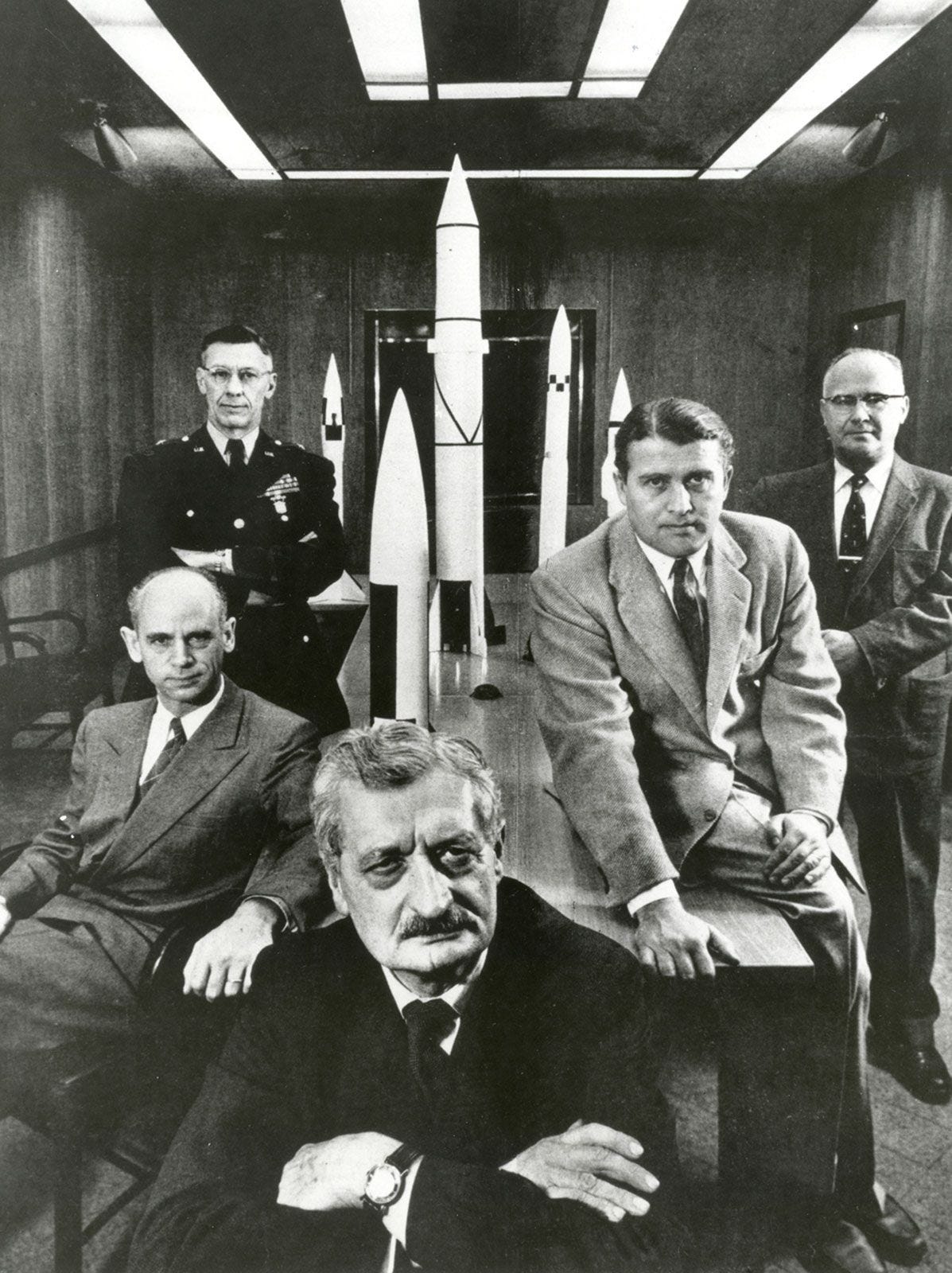
After returning, Pökler’s work ramped up even further. The thought persisted in his mind that Ilse was mere meters away in the camp which he could not enter. On top of this, Weissmann had been unseen for some time now until one day, after awaking from a dream of “a city of elves producing toy moon-rockets,” (431)3 Weissmann stood over his bedside. He called him to a meeting to become one of the men assigned with a special task, possibly the thing Weissmann had been grooming him for this entire time. And since Pökler was not the only one here to be assigned this task, we wonder if Weissmann been doing something similar with others this whole time.
Their task would separate them entirely from the others working on the V-2 — yet another separation or compartmentalization of knowledge, those in power knowing the full plan while the individuals below them only knowing their own niche. But this one was different. Pökler and the small, selected group would be placing a ‘modification’ inside one specific rocket which would be labeled as 00000 — the quintuple zero. The rocket needed to be reworked, propulsion devices and fuel lines rerouted, all for this device, the Schwarzgerät itself, to be housed within. The creation of this device is the reason why, when Slothrop looked over the documents which Mario Schweitar acquired for him on Laszlo Jamf, Franz Pökler was listed as a customer of Imipolex G, given the device is known to be made out of this substance. The project took a mere two weeks, and when it was done, work returned to normal. Only, Weissmann was never seen again.
Shortly after that, the War was ending. Pökler had spent the entirety of it seeing very little conflict having only ever been on the production side of things. The Americans were making their way into Germany for the liberation of the camps, and Pökler merely waited. But he was given a letter of furlough telling him that once it was over, he would have full permission to return one last time to Zwölfkinder, and that Ilse would be released. It is the letter that led him to where he lays now in the present time, under the great Wheel, waiting.
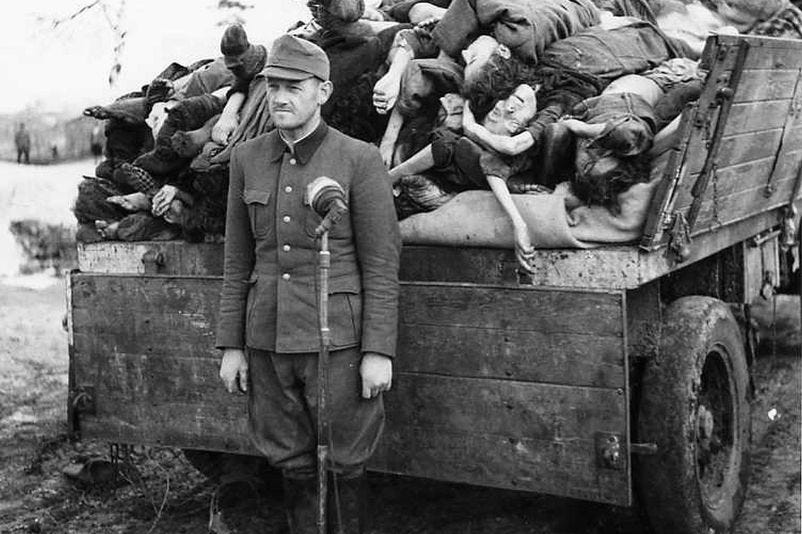
But first, right before he left, now without any guards or camp leaders to prevent him from entering Dora, Pökler finally makes his way in. Yes, he knew what occurred beyond these walls. He “Had the data, yes, but did not know, with senses or heart” (432) how viscerally horrifying it would really be. No one can know the horrors without seeing them firsthand. And so that is what he did. Pökler walked among the desiccated corpses of the concentration camp now being piled and shoveled into mass graves. He knows that his willful ignorance and his participation in this project could never be forgiven — that he had not only been a participant in the genocide of innocence, but in the genocide of an entire people. There is no forgiveness now; no repentance can serve to relieve any of these men from their sins. But that does not mean his reaction is not genuine. Pökler, from this moment forward, from leaving the camp, to his waiting at Zwölfkinder, to when we see him further down the line, will be a man plagued by guilt and self-hate. So, for now, he does the best he can, taking “off his gold wedding ring,” (433) the final symbol he possessed to remember Leni, the love of his life who he did not save, and puts it on the finger of a dying woman in hopes that it could at least save her.
Up Next: Part 3, Chapter 12
If it’s your first read, this reference will not yet make sense (and it is also not a spoiler in any way), but just keep the fact tucked away somewhere.
Keep in mind, all of this is happening years before we saw Enzian meet Slothrop on the train into the Zone (3.1), and before he and his Schwarzkommando were seen in the hills of Nordhausen scavenging for V-2 parts and creating their own bomb (3.4).
A reference to the ‘trinket’ market that would emerge from the Mittelwerke which Slothrop saw upon his first entrance of it (3.2).



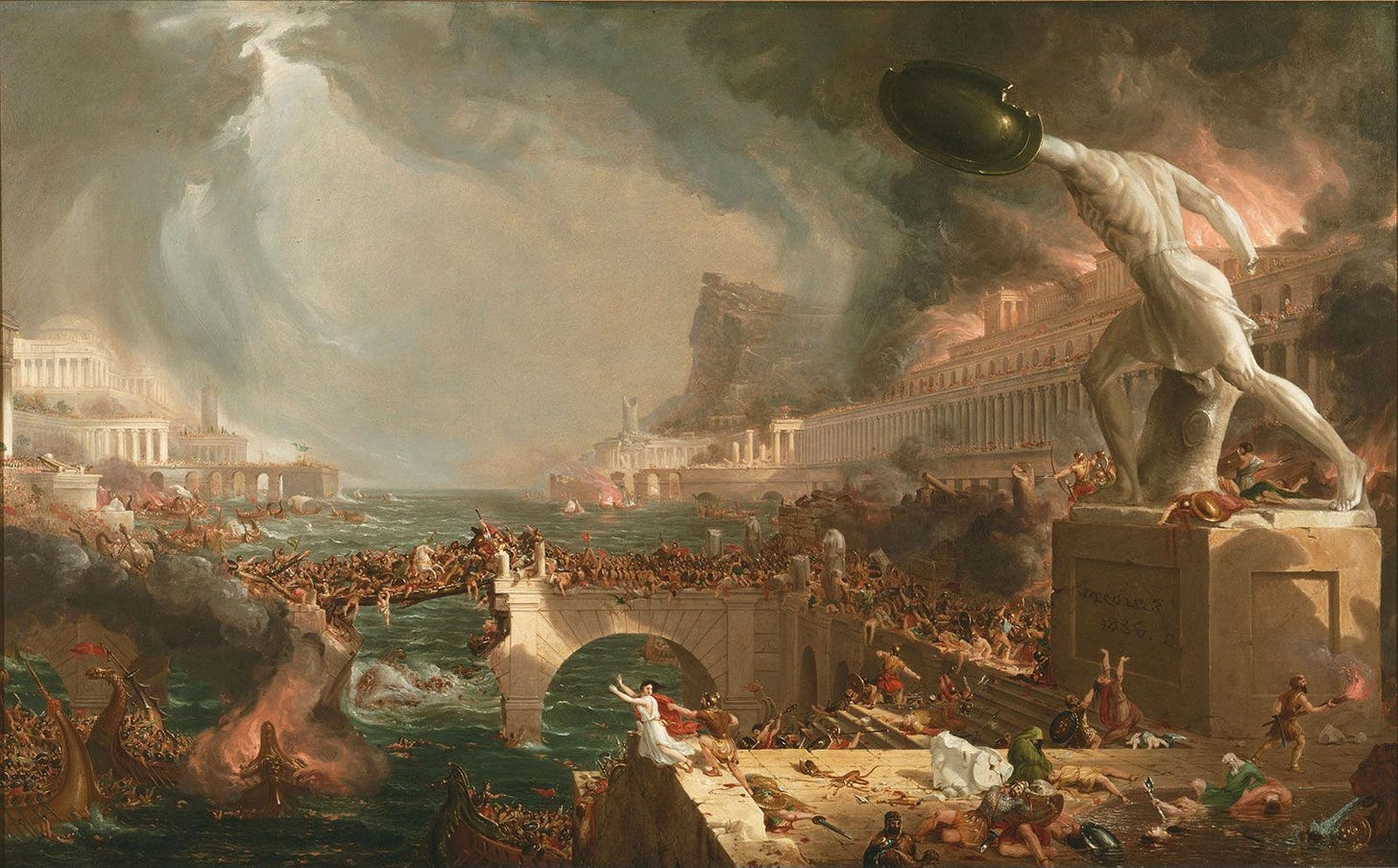
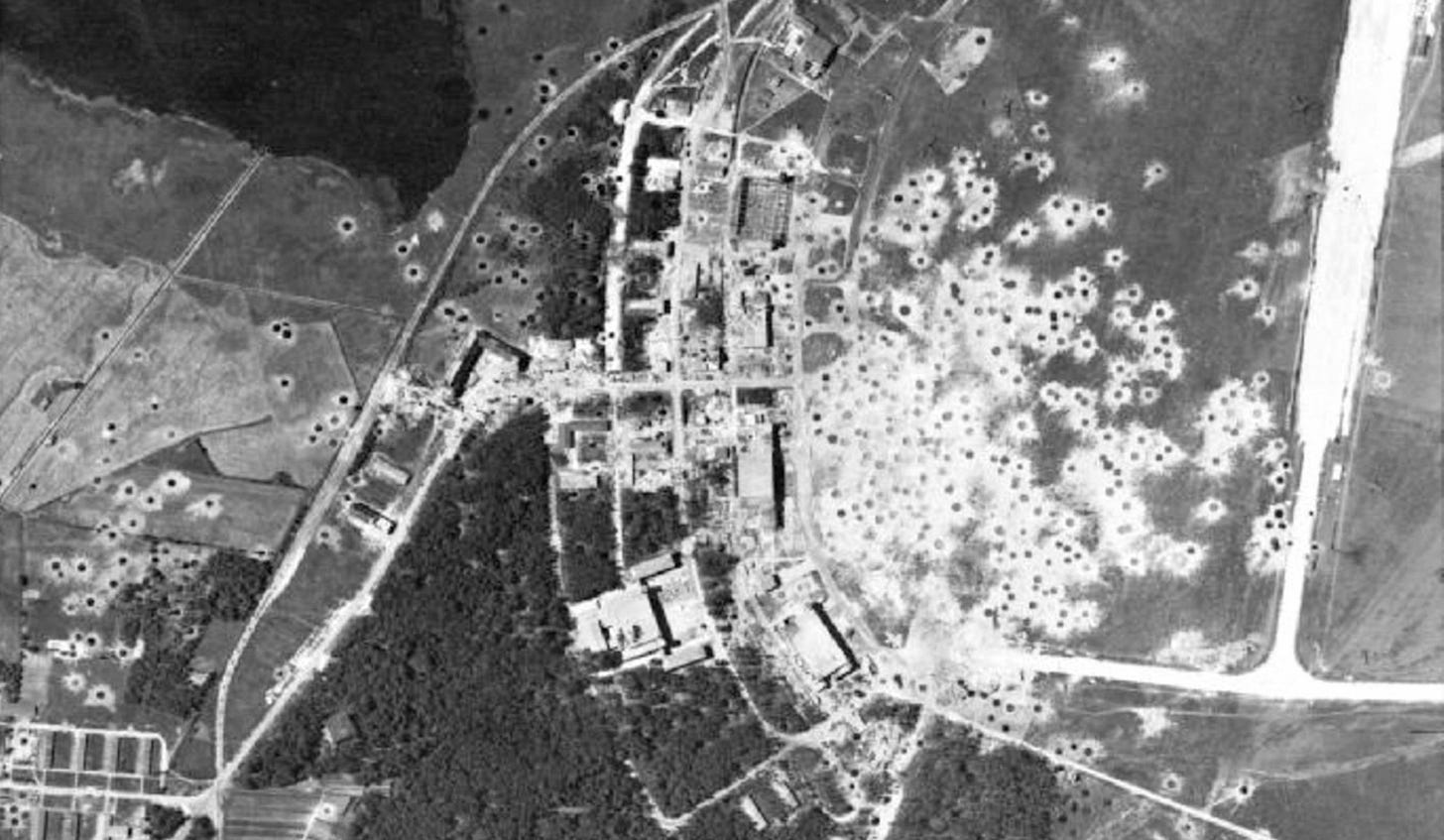
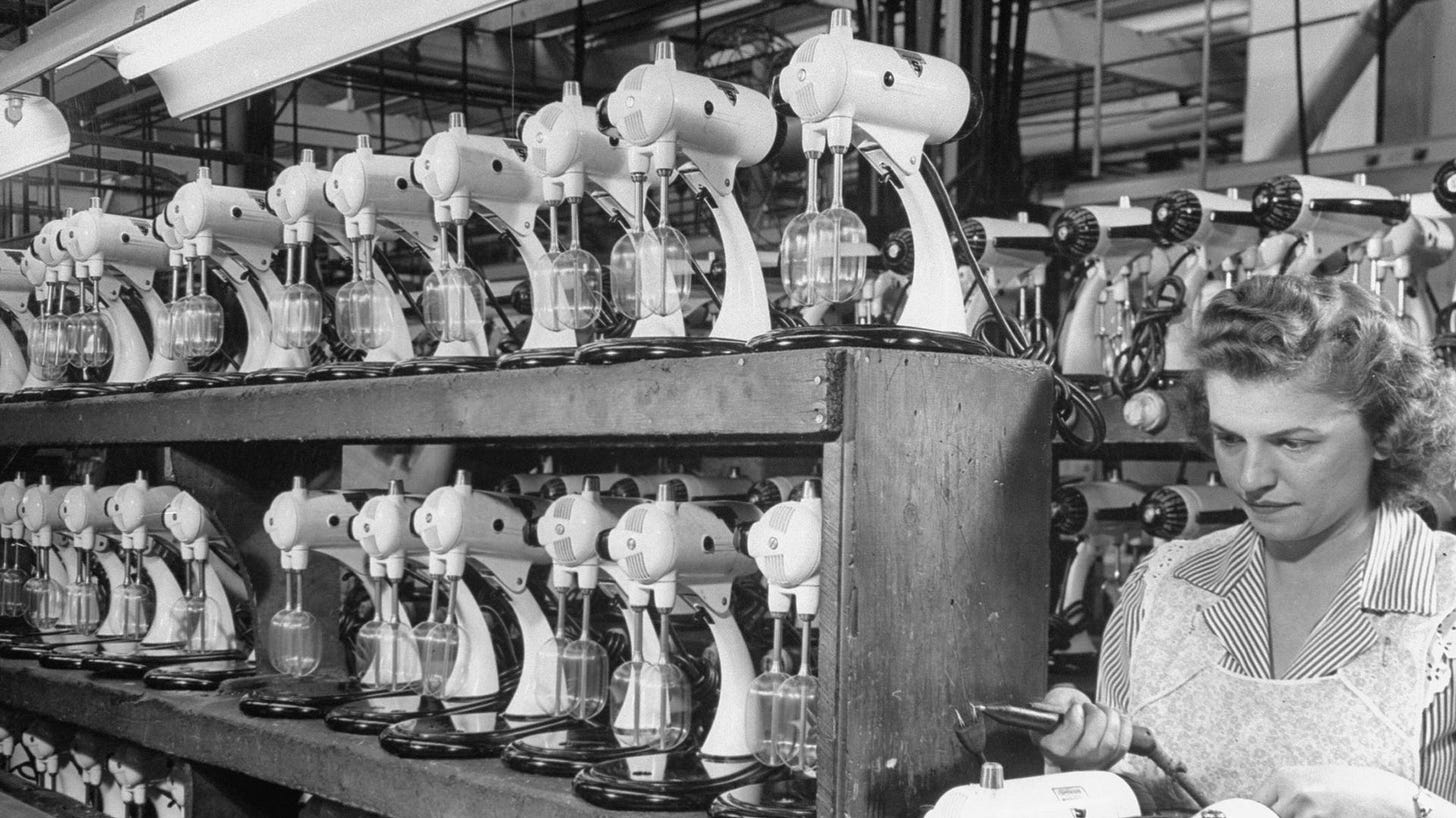
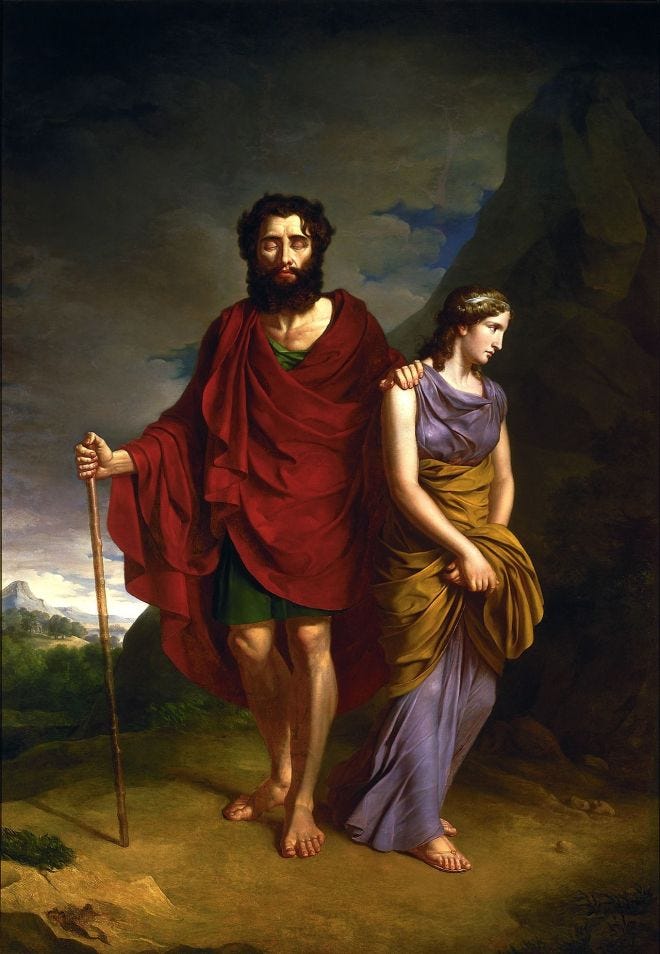
you're saying here that Pölker didn't have sex with Ilse, that it was a fantasy? That's not how I read this passage at all -- I definitely thought they f*cked and that's such a poignant and painful situation Pynchon sets up with Ilse -- that Weismann is controlling him by placing him in this officially incestial sexual dependency that even if Weismann was sending different girls each year, Pölker at least had to keep up the pretense that she was his daughter so he could get his annual sex vacation, a situation Weismann could turn into blackmail if needed. I'm rereading the beginning of this section now and also rereading your post, and I think my darker, more perverted reading is true and you're too good-hearted and innocent yourself to see it, as a high school teacher should be. We definitely have a Humbert Humbert here.
Here's a great guided tour through the top passage: https://biblioklept.org/2016/11/13/a-place-must-be-made-for-innocence-gravitys-rainbow-annotations-and-illustrations-for-page-419/
"[William] Blake’s Songs share much in common with Pynchon’s big novel—both argue for the preterite, pointing out the ways in which industrial technologies exploit the most vulnerable among us; both are wildly, acidly vivid; both employ metaphors of fall and ascent; both foreground the utterly real humanity of their subjects."
"a child city counsel of twelve" -- from Pynchon Wiki https://gravitys-rainbow.pynchonwiki.com/wiki/index.php?title=Pages_397-433: he name evokes Jacob's twelve sons (and the daughter who is not one of the official twelve). This pattern is self-consciously repeated in the Grimms' tale "The Twelve Brothers", where the boys are to die if their mother gives birth to a girl.
The camp, which is also a quasi-town, may be modelled after Theresienstadt, the Jewish town/Lager set up by the Nazis in what is now the Czech Republic. This is suggested by themes like transit, phoney children's paradise, as well as the large orchestra, or the number 60,000 (the number of those who "passed through" Zwölfkinder as well the population of Theresienstadt at its peak). It also recalls another totalitarian institution, that of the communist "children's towns" (large, town-like, somewhat militarized holiday camps for Young Pioneers), whose prototype was Artek in the Soviet Union. (Deutsches Jungvolk also had its summer camps.)"
Tierpark = zoo
Hoard of the Nibelungen https://en.wikipedia.org/wiki/Nibelung -- Nibelung looks to be associated with dwarfs and small people. First link above connects this with GR page 516, which maybe I should just quote then, but that points to the 1936 movie Freaks: https://www.youtube.com/watch?v=vJVXTKkjsxA&t=45s
Glass Mountain https://en.wikipedia.org/wiki/The_Glass_Mountain_(fairy_tale)
Hugo Wolf -- Lieder, mostly
Zwölfkinder itself as the place/idea is made up by pynchon for this setting but these types of things did exist in weimar as far as I know
I agree with Andrew on this one. Pölker's incestous fantasies are undoubtedly real and, in my opinion, all the chapter's silent negotiations between Pölker and Weissmann are modulated on the repressed istinct of the engineer (“every quirk goes in the dossier,
gambler, foot-fetishist or soccer fan, it's all important, it can all
be used. Right now we have to keep them happy, or at least neutralize
the foci of their unhappiness"). In the light of these informations, revealed during the first time at Zwolfkinder, i read some of Pölker's previous actions in the chapter (“Major Weissman had bought her sweets, and had asked her to say hello and sorry he couldn't stay long enough to see Pölker Weissmann? What was this? A blinking, tentative fury grew in Pölker" and "His daytime work had started to go better. Others were not so distant, and more apt to look in his eyes. They'd met Use, and been charmed. If he saw anything else in their faces, he ignored it"). I would suggest that those reactions are not caused by paternal concerns, but by Pölker's intimate jealousy towards other people's fantasies for daughter; in this way Pynchon is emphasizing again the inherent and structural nihilistic (morally and ontologically) perversity of nazism. Everyone here just wants to 'rape' the future. Even Pölker's suspicion about his daughter's annual replacement is nothing more than a mechanism used to partially coexist with his instincts, which he does not give in to because, as we see at the end of the chapter, it seems to maintain a minimum, even if it's too late, sense of morality.
Surely a very ambiguous chapter (Pölker's instinct can be interpreted both as a historical political essence and, narratively, as a brutal manifestation of Pölker's attraction to his childhood).